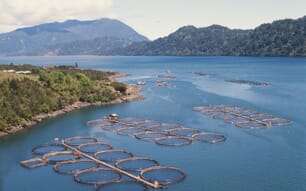Department of Primary Industries fish biologist, Craig Boys, said the purpose of PSFI workshop was to take the first steps in developing a collaborative network of fish-friendly hydropower generation research projects.
"Hydropower already produces 63 per cent of this states renewable energy and there are significant opportunities to increase that output using existing weirs and irrigation supply networks to generate power," Dr Boys said.
"Small-scale hydropower projects have been identified as a potential way to meet future renewable energy targets, but uncertainty regarding the impacts of these on aquatic animals, particularly fish, remains a significant constraint to future developments.
"Many species of fish undertake long migrations up and down rivers at different stages in their lives.
"The provision of safe fish passage remains a significant concern at hydropower plants on dams and weirs where rapid changes in water pressure and increases in turbulence can injure and kill fish."
During the three day workshop, new state-or-the-art research facilities were unveiled at PSFI for examining the impacts of rapid decompression on fish.
"Only a small number of these facilities exist throughout the world. Of these, the one at Port Stephens is the most sophisticated," Dr Boys said.
"PSFI now has the research and development capacity to be a world leader in fish friendly hydropower research and development.
"Over the next twelve months, researchers at PSFI will be studying the tolerances of native freshwater fish such as silver perch, golden perch and Murray cod to simulated passage through a turbine, during larval and juvenile stages.
"This research will ensure that new hydropower developments in Australia are fish-friendly and there is also excellent potential to work with our international partners to share this knowledge globally," Dr Boys said.
The research is funded by Waratah Power, with the funding support of the NSW Office of Environment and Heritage and the Emerging Renewables program of the Federal Agency ARENA.
Search for Green Energy Solutions Leads to Port Stephens Fisheries Institute
AUSTRALIA - More than 25 scientists from around the world converged on the Port Stephens Fisheries Institute (PSFI) earlier this month as part of a global effort to improve the environmental sustainability of hydropower generation.
by Lucy Towers



